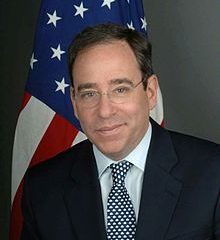Alan Sparhawk announces solo album in New Yorker article
The New Yorker published an article today on Duluth musician Alan Sparhawk, chronicling his career in the seminal indie-rock band Low and concluding with news about his latest recordings. “The fruits of this work will be released this fall under his own name, as a record called White Roses, My God,” reads the article’s final sentence.












